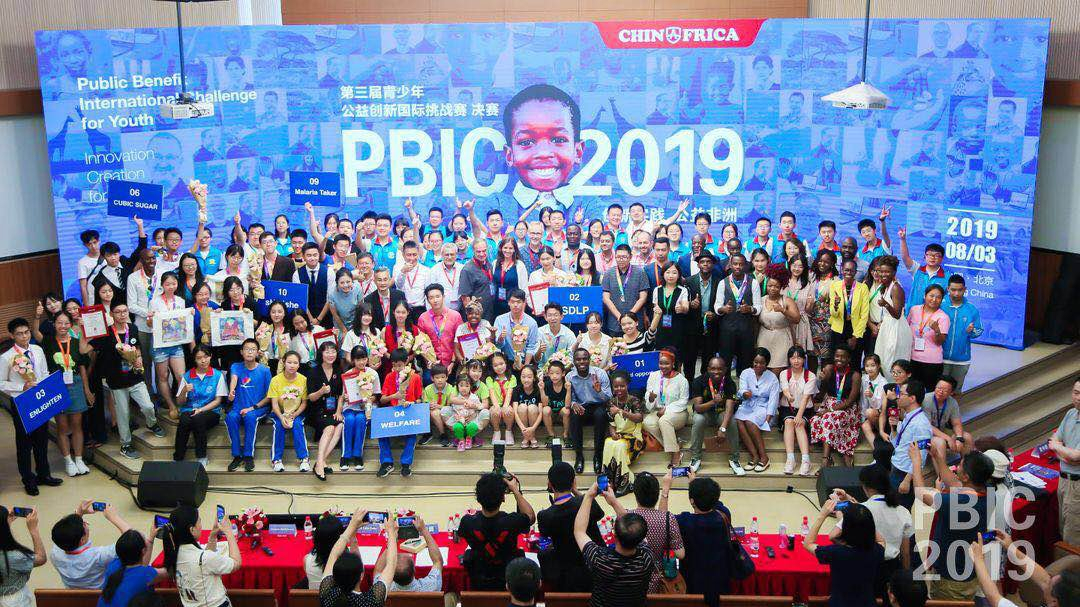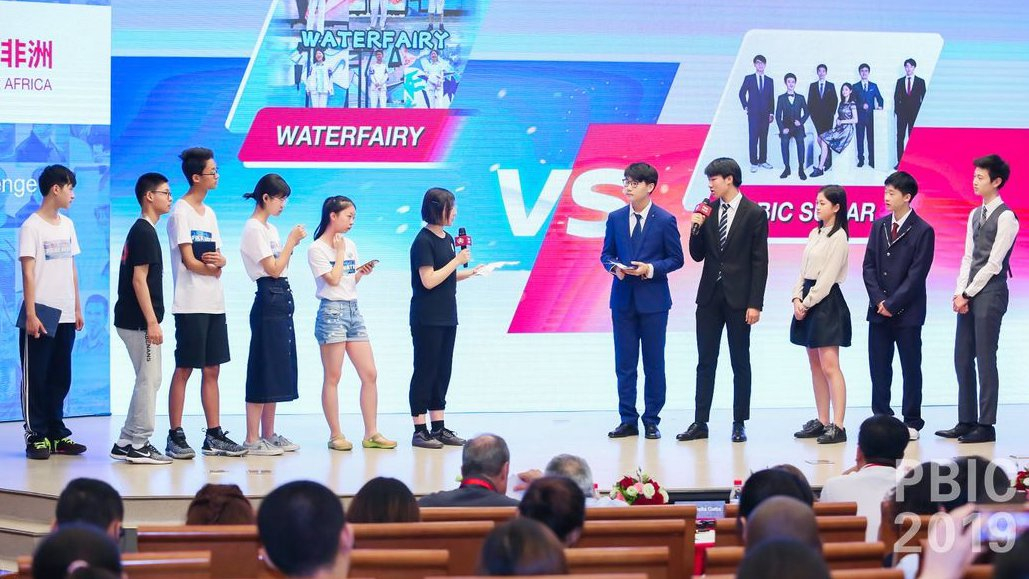

The Public Benefit International Challenge (PBIC), which aims to build closer ties with Africa by challenging teenagers in China to come up with innovative ideas to solve societal problems, has ended in Beijing with 10 teams winning awards.
Competitors between the ages of 10 and 17 offered ideas to fight female genital cutting in Kenya, deliver clean drinking water in Zambia, and transport vaccines to Uganda.
A program called "Digital Library Africa" aims to raise funds by selling Chinese story recordings in English and helps children in South Africa with rare diseases. One of its members is Thembekile Mphuthi, a 16-year-old South African who is a junior school student in Beijing. Thembe said she felt quite proud to do something with her Chinese friends for her homeland.

Team "Digital Library Africa" poses for a photo after the award ceremony in Beijing, August 3, 2019. /Photo courtesy of PBIC
Together with Thembe, these young students also care about the transportation of medicines in Uganda, malaria problems in Malawi and women’s health in Zimbabwe. Their performances have deeply impressed the judges, among whom are professors from top U.S. universities.
Dr. Carla Della Gatta from the University of Southern California said she was quite impressed by all the competitors while Professor Robert Lyon from New York University said he believes the Chinese students are going to be future leaders.
"I hope PBIC can let people understand Africa and the public welfare there better and let children turn their ideas into executable reality as well," said Wang Xiaoyong, PBIC founder and general secretary of the China-Africa Business Council.

Three years of development, over 800 participants
The Public Benefit International Challenge for Youth was founded in 2017 by the China-Africa Business Council and the China Social Assistance Foundation. After three years of development, the competition has attracted hundreds of Chinese students.
"We came up with the idea in 2016 ... because as the China-Africa Business Council, our major mission is to promote trade and investment in Africa. During the process, how to mobilize more forces to support Africa's development and promote communication among young people is a particularly important issue for us to think about," said Wang.
Three years later, many innovations put forward by Chinese students through the PBIC are being implemented in Africa step by step.
Wang Xiaoyong told CGTN that a program called "Arktek," which provides vaccine refrigeration to Zimbabwe, has already been implemented. "These refrigerators can guarantee the quality of the vaccine for 35 days without electricity. The refrigerators were made in China, using international technology," Wang noted.

Most of PBIC judges come from top U.S. universities in Beijing, August 3, 2019. /Photo courtesy of PBIC
Meanwhile, a program called "Musical Run" developed six musical classrooms at schools in Malawi. The team members traveled to the country and were even received by the first lady of the African nation.
Africans say the contest has played a significant role in boosting China-Africa ties. "PBIC is taking the first step to help a lot of kids in Africa. As we know in some African countries, people are facing challenges. I think the program is going to help Africa in the short run, and also in the long term," said Tionga Benas Phiri, a PBIC mentor from Zambia.
The program is also supported by the United Nations. Its work ties into the UN 2030 Agenda for Sustainable Development, while giving the young participants an opportunity for growth.
"It's a very wonderful initiative put forward by China-Africa Business Council and China Social Assistance Foundation to deepen people-to-people exchanges between China and Africa in a concrete way," said Babatunde Ahonsi, the United Nations Population Fund (UNFPA) Representative in China.
And the PBIC has ambitions. Wang Xiaoyong said in 2020, they hope to extend the contest to more cities in China and will also try to organize a competition in Africa. "We would like to call on Chinese children, African children, and children from other countries of the world to discuss their concerns together. Let children contribute their ideas and forces to the development of the world," said Wang.

Copyright © 2018 CGTN. Beijing ICP prepared NO.16065310-3
Copyright © 2018 CGTN. Beijing ICP prepared NO.16065310-3